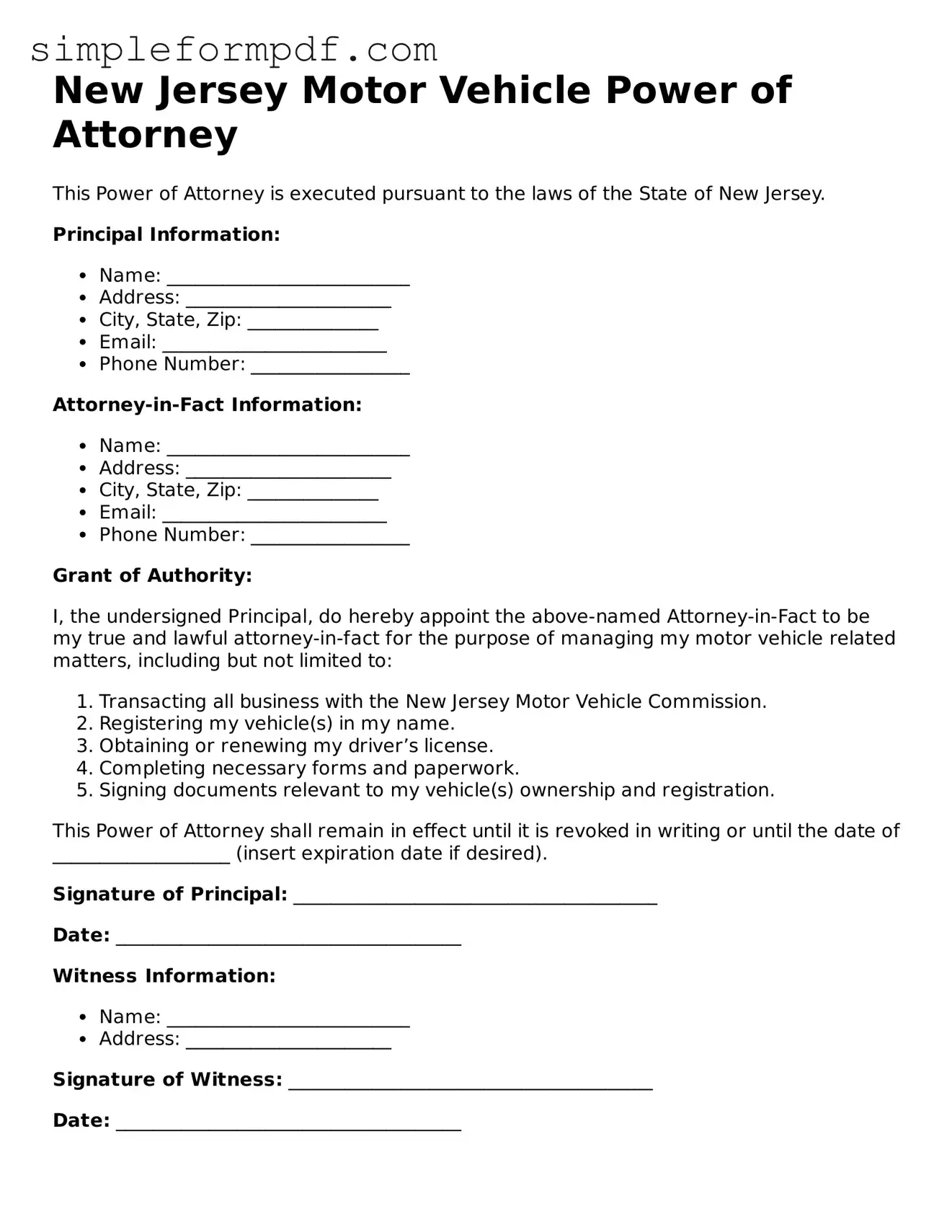Free Motor Vehicle Power of Attorney Form for the State of New Jersey
The New Jersey Motor Vehicle Power of Attorney form is a legal document that allows you to designate someone else to handle your motor vehicle transactions on your behalf. This form is particularly useful if you are unable to complete these tasks in person due to various reasons, such as being out of state or having health issues. By granting this authority, you ensure that your vehicle-related matters are managed efficiently and according to your wishes.
Ready to take control of your vehicle transactions? Fill out the form by clicking the button below.
Launch Editor

Free Motor Vehicle Power of Attorney Form for the State of New Jersey
Launch Editor
Need instant form completion?
Finish Motor Vehicle Power of Attorney online in just a few minutes.
Launch Editor
or
Download PDF
